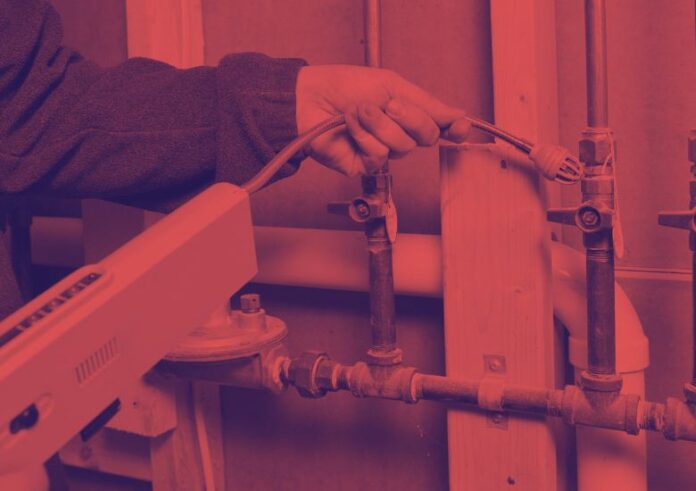When it comes to natural gas line installation, it’s normal to have a bunch of questions swirling around in your head. Whether you’re considering switching to natural gas or simply adding a new appliance, understanding the ins and outs of the process can feel a bit overwhelming. The good news? You’re not alone, and we’re here to help!
Let’s dive into some of the most commonly asked questions about natural gas line installation.
What Exactly is a Natural Gas Line Installation?
Natural gas line installation involves setting up the piping system that brings natural gas from the local supply into your home. These lines connect to appliances such as stoves, dryers, water heaters, and even your furnace. The process needs to be handled by a professional to ensure it’s done safely and according to code.
How Do I Know If My Home Can Have a Natural Gas Line?
One of the first questions homeowners ask is whether their home can be connected to natural gas. Most urban and suburban areas have access to natural gas lines. The catch is, your home needs to be within a certain distance of existing gas pipelines for it to make sense practically and financially. A quick call to your local gas company or a consultation with a specialist can determine if your home is eligible.
Looking for gas line installation services in Dallas County?
Contact On The Way Plumbing!
Call Us Now!
What Are the Benefits of Installing a Natural Gas Line?
Natural gas is known for being an efficient, cost-effective source of energy. It’s typically less expensive than electricity for heating purposes. Gas appliances usually have a longer lifespan and offer a cleaner, more precise form of energy, especially for cooking. Not to mention, using natural gas can increase your home’s appeal and value when it comes time to sell.
What Does the Installation Process Involve?
Installation typically kicks off with a site evaluation by a professional. They assess the best route for the pipework and ensure everything will meet local regulations. Once planned, the installation entails digging trenches for new pipes, connecting the system to your home and appliances, and then thorough testing to ensure it’s all working safely. Depending on your setup, this process can take anywhere from a single day to several days.
Is Installation Disruptive?
Naturally, anything involving construction on your property will come with some disruption. The good news is that experienced technicians aim to keep inconvenience to a minimum. Most work outside, like trenching for the pipeline, and any indoor work involves connecting and testing appliances. Cleaning up the workspace to make it seem like they were never there is also part of a good team’s job.
Do I Need Permits for a Gas Line Installation?
Yes—installing gas lines usually requires specific permits. Local building codes have strict requirements, so engaging a professional is crucial. They’ll handle all necessary permits and ensure installations meet safety standards. It’s one less thing for you to worry about.
How Much Will It Cost to Install a Natural Gas Line?
Costs can vary widely based on factors such as the complexity of the installation, how far your home is from existing lines, and local labor rates. On average, you may look at a price range of $500 to several thousand dollars. While upfront costs can seem steep, the savings on your energy bills can offset this over time. A professional consultation can give you a more detailed estimate.
How Can I Ensure My Natural Gas System Remains Safe?
Once installed, safety comes down to regular maintenance and responsible use. Annual inspections by a professional can catch issues early, and being mindful of your appliances (like turning them off when not in use) helps as well. Installing carbon monoxide detectors adds another layer of safety, alerting you to any potential leaks or dangerous situations.
What Should I Do If I Smell Gas Once the Line is Installed?
It’s important to treat any hint of a gas leak seriously. First, don’t use any electrical devices or open flames, as this can ignite the gas. Instead, calmly leave your home and call emergency services and your gas company as soon as you’re in a safe place. They’ll handle the situation from there.
Can I Install a Gas Line Myself?
While the thought of saving a bit on labor costs might be tempting, this is one job best left to the professionals. Gas line installation is complex and carries significant risk if mishandled. Licensed professionals have the knowledge and tools to ensure everything is up to code and perfectly safe. It’s not a situation anyone should DIY.
Wrapping It Up
Thinking about installing a natural gas line involves a lot of moving parts, and it’s normal to have these questions. Addressing them early can make the whole process smoother and ensure you make the best decision for your home.
If you have more questions, or if you’re ready to move forward with an installation, feel free to reach out to us at On The Way Plumbing Leak Specialist. We’d love to help you understand your options and make your transition to natural gas as straightforward as possible.
Our experienced team is ready and equipped to handle your gas line installation with care and precision, ensuring you reap all the benefits natural gas has to offer. Give us a call today for a free quote or to schedule your natural gas line installation services. Your home’s comfort and safety are just a step away!


